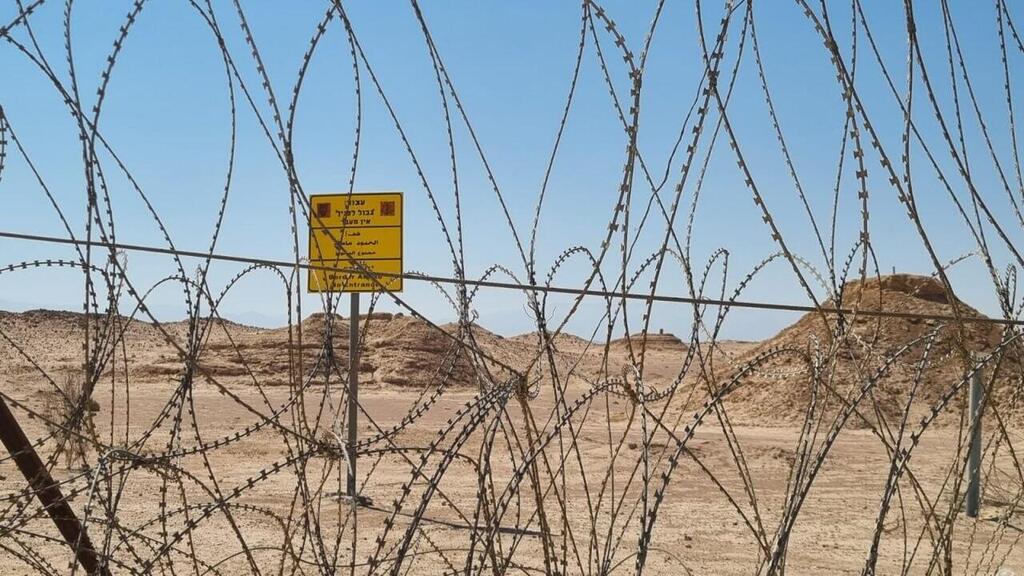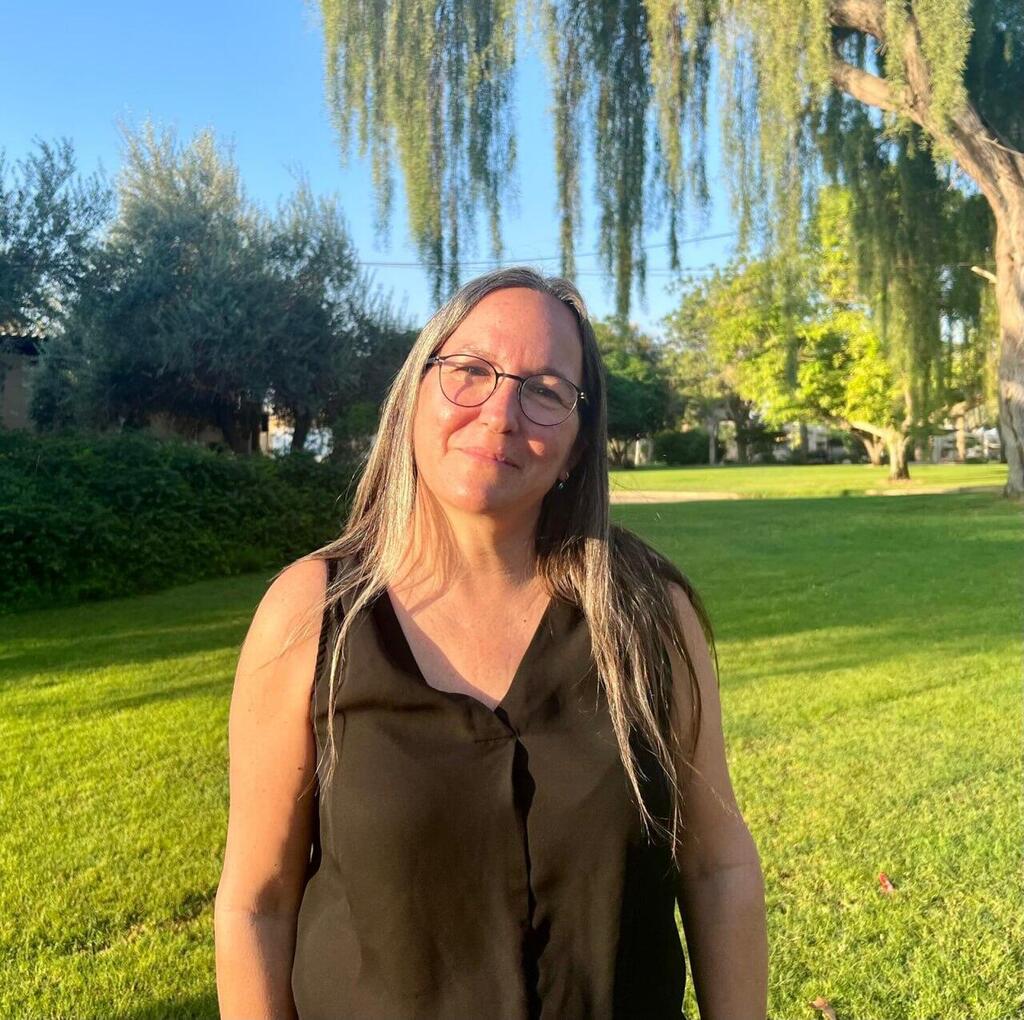Getting your Trinity Audio player ready...
Residents of the Central Arava Regional Council have recently reported hearing the buzz of drones flying overhead at night, compounding existing security concerns. It remains unclear who is operating the drones or where they originate—whether from within Israel or Jordan—and efforts to identify the source have so far been unsuccessful.
The council alleges that the drones are being used for smuggling drugs and weapons, but the IDF has yet to offer a solution. Recently, Border Police forces detained two suspects, but they were released due to a lack of evidence.
הגבול הפרוץ עם ירדן
(Video: Ilana Curiel )
The mystery drones add to the challenges facing Arava communities, which have seen a rise in thefts, particularly of metal cables and solar panels from agricultural fields. This criminal activity not only disrupts operations but also further erodes residents' sense of security.
Concerns have been heightened since the October 7 massacre, given the region's proximity to the porous Jordanian border, creating a challenging situation that undermines the area's once relative tranquility.
“There is complete disregard for the situation,” a local farmer told Ynet. “We’re worried something like October 7 could happen here. The council is trying to strengthen security in the villages, but half a kilometer from here is another country. We are trying to deal with both security and agricultural theft on our own. There have been several instances of diesel theft from homes in Hatzeva. There’s a police station in Sapir with two officers, but farmers often don’t report incidents because they’re told to 'file a complaint on the app,' and nothing happens.”
Agricultural theft has long troubled Central Arava farmers, but the problem has worsened in the past year. “About a month ago, a gang was caught near Paran, but they were arrested before they committed any crimes, so they were released after two weeks,” said Uri Lev, the security chief of Central Arava.
“The main issue is the lack of police presence. Two officers cover the entire area 24/7, and one lives in Dimona. Border Police are not in our sector, and we have requested increased police presence.”
Recently, Border Police recovered stolen poultry from the Antelope Ranch between Sapir and Tzofar within a day, but locals claim it’s not enough. “Border Police only intervene in major incidents and don’t put effort into smaller ones,” Lev said. “The Dimona station oversees a vast area and lacks officers. I understand the constraints, but I want them to catch the thieves.”
Route 227 leads to the Great Crater and the Yeruham area, from where most of the thieves reportedly come. “It’s a route that’s not monitored,” Lev explained. “All of this exhausts the farmers. Some don’t report thefts, thinking, ‘Why bother? I’ll just be told the case is closed due to lack of public interest.’ Soon, we’ll enter the date season, and we’ll need to invest in private security to protect them. We’re suffering from this and feel neglected.”
Facing criminal and security threats
Beyond the criminal issues, Arava residents fear the threat from the east, where a simple barbed wire fence, at best, separates Israel from Jordan. Recently, two Sudanese infiltrators easily crossed the fence, reaching Tzofar in search of work.
“We were born on an insecure border,” said Osnat Sela, 53, head of early childhood education in Hatzeva. “I’ve often been in the shelter with my family. In the past, the fathers would go out during an incident while the women and children stayed in the shelters. We enjoyed many years of peace, but recently, we’ve seen significant Jordanian military construction along the border. You never know where or when something might happen.
“After October 7, you can’t say, ‘Nothing will happen.’ A few years ago, we heard gunfire from there, and they told us it was the Jordanian army training. Why would they train on the border?”
Her concerns are echoed by S., a farmer from the council, who said, “We are 500 meters from the border, and every evening I sit with my wife and see the buildings growing. We understand the Jordanian army is expanding. We have no complaints against the IDF—they’re doing their best—but the resources are stretched thin. We feel abandoned.”
How do you cope with this?
“The alert squad in Hatzeva has increased from 17 to 28 people, but they’re just 40- to 50-year-olds holding guns to protect their homes, not a battalion. In Hatzeva, Idan and Paran, we’re concerned about the lack of a proper fence and the unknown. If I put myself in a terrorist’s shoes, he’d come here. It’s the easiest target, and no one would notice.”
Meanwhile, thefts persist.
“Anything not anchored to the ground is taken—from irrigation equipment for marijuana to grapes, watermelons and diesel in elevated tanks. When they see thefts go unchecked, it escalates to large-scale weapons smuggling, which is highly lucrative.”
Gabi, 67, a grower of flowers, mangoes and dates from Hatzeva, said the thefts have intensified recently. “It’s become relentless. Recently, they stole power cables, especially the thick ones for the flower lighting systems. The thieves came at night and did a professional job. They took the valuable cables and cleaned us out. They’ve emptied my diesel tank twice, week after week.”
Nir, 49, a farmer from Hatzeva who grows peppers, zucchini and watermelons, added, “Some greenhouses have thermal screens and fans for advanced crops. The thieves come, cut and leave. It’s like entering a restaurant, eating and dashing without paying the bill. Recently, they stole about 800 meters of cable from me. We have a very nice officer who really tries, but agricultural theft continues.”
In response, Israeli Police said, "The Border Police invests significant forces, including detectives from central units, rural assault units and various operational and intelligence activities, to enforce agricultural crime laws in rural sectors. The Southern Border Police also operate in the agricultural communities of Central Arava. Complaints filed a few months ago were addressed, and suspects were arrested. Units continue to work to prevent and enforce offenses in the area."








